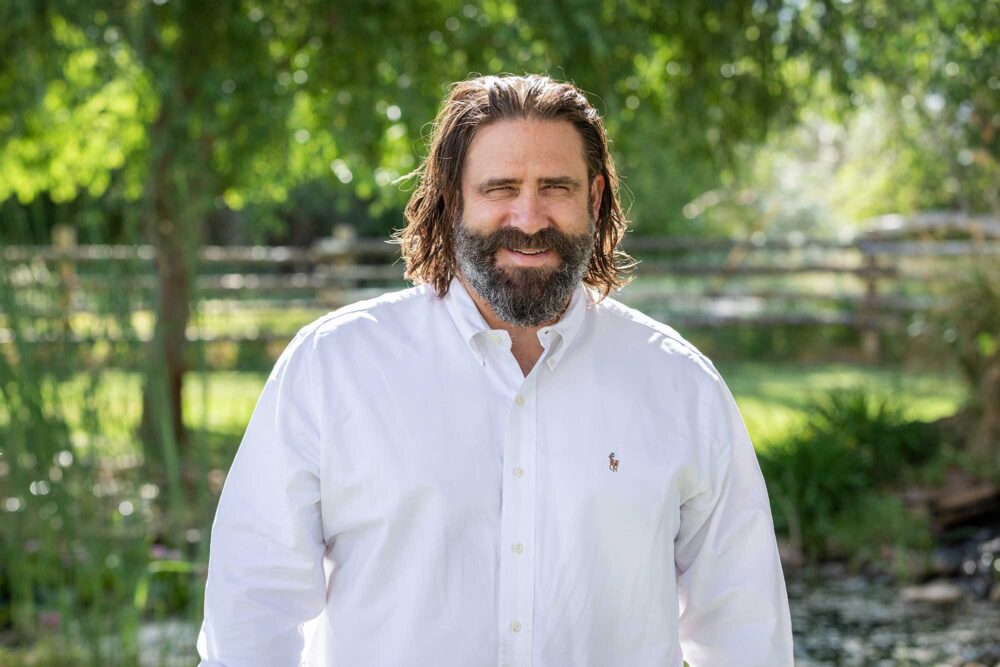A Letter from Our Founder

When I started Ascend 17 years ago, all I was trying to do was start a program. I started with a name. Ascend came from a concept I had that I had been thinking about as a therapist before I started the program. In my work as a therapist before, patients were always coming to me saying, “I want to be who I was before all this happened to me.” I always understood this sentiment, but I always felt this was curious – in that some of whoever they were before might have led to some of the problems for which they were seeking treatment. What I often thought to myself after hearing this phrase sounded something like, “Maybe it would be ideal if you come out of treatment a better version of yourself than you were before?” I tried to think of a word that would represent this concept. I settled on Ascend. I added the word recovery after Ascend to help patients see their goal as, “being in recovery”, rather than just graduating from treatment.
I was trying to start something novel, taking some elements of programs that I knew were effective, and sprinkling in ideas from the previous 8 years of experience that I had yet to see in programs. I also desire to have some elements I felt were necessary in the treatment of those struggling with addiction and mental health disorders. To that end, we started with a credible staff and experiential treatment framework intending to be truly expertise at the dual-diagnosis program we promised families. Next, we added a three-phase model. At the time this was new, but has since been widely adopted in the industry by many different programs. I believe that our long-term model has raised the bar for patient care in our field. I’m proud of Ascend for that.
So, we built a program, and we tried to do right by our patients. While this has been meaningful, I don’t think it’s the most important thing that has happened at Ascend since its inception. Over the past 17 years, something much more interesting, unexpected, and far-reaching has happened…Ascend evolved from simply being a program and became an idea, an ethos. To be honest, I’m not sure what role I played in this transformation. I know that this evolution is not solely about me because, by definition, what I’m describing is larger than any one individual. It must have been shaped by the patients and staff themselves as they used Ascend as a tool to invest in their personal growth, build their character, and pursue dreams that extended far beyond the program itself. Patients, staff, and sometimes staff that were once patients have chosen professional careers, families, and public service. In many cases, they have used their experience to become helping professionals themselves. Most importantly, many of them now lead Ascend such as our owner, Clay Cross. 13 years ago, Clay was a patient. Now, he owns the program. To me, that isn’t just proof the program works. It’s proof that it became a set of ideals that someone could attach to themselves and bring forward into their future.
After handing over the reins to Ascend’s leadership and taking a clinical role outside of direct management, I’ve been able to reflect on all that Ascend has given me over the years. The list is long and may be too personal to enumerate here. It can be summed up in one sentence; however, by the philosopher Khalil Gibran, “Work is Love made visible”. Ascend has given me the gift of having a front-row seat to exactly that. For 17 years I have seen love made visible by the work at Ascend. When you get to sit that close to that process every day it changes you into something better. I will forever be grateful for the experience given to me at Ascend. I believe you will too as you move forward on your journey of recovery at Ascend.
-Ryan Salter, LCSW
Contact Us Today!
We encourage you to reach out to our team with any questions you may have. Getting help can seem like an overwhelming process, but you don’t have to go it alone. We’re here for you.
